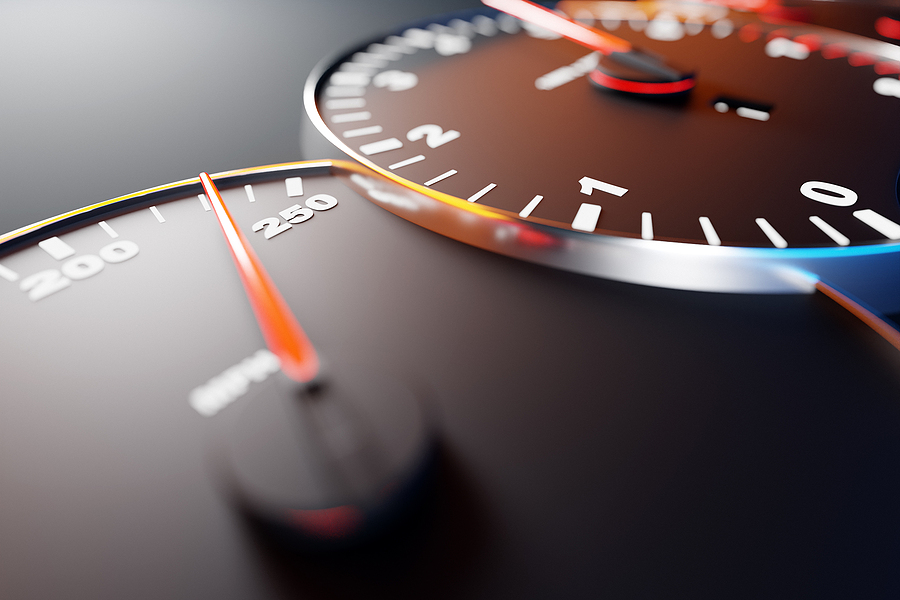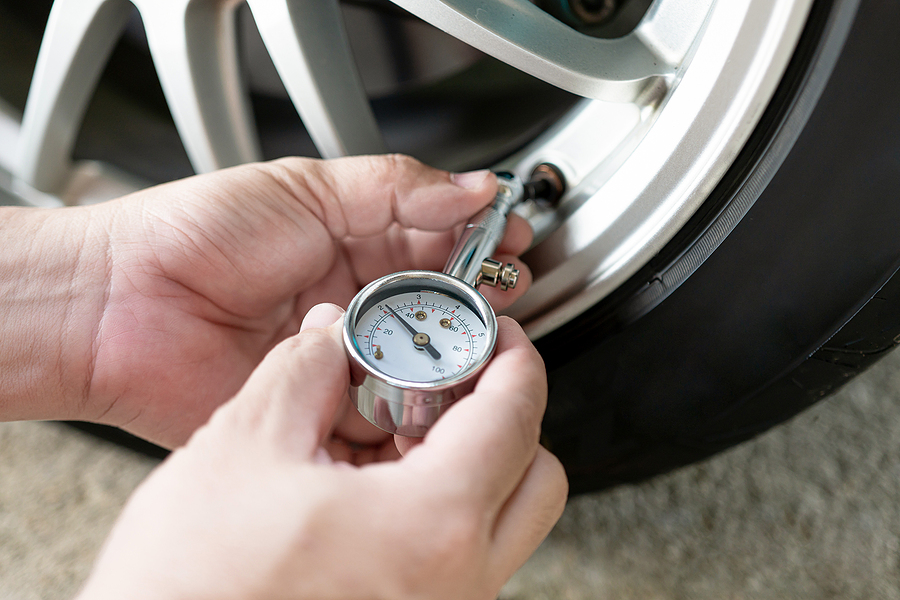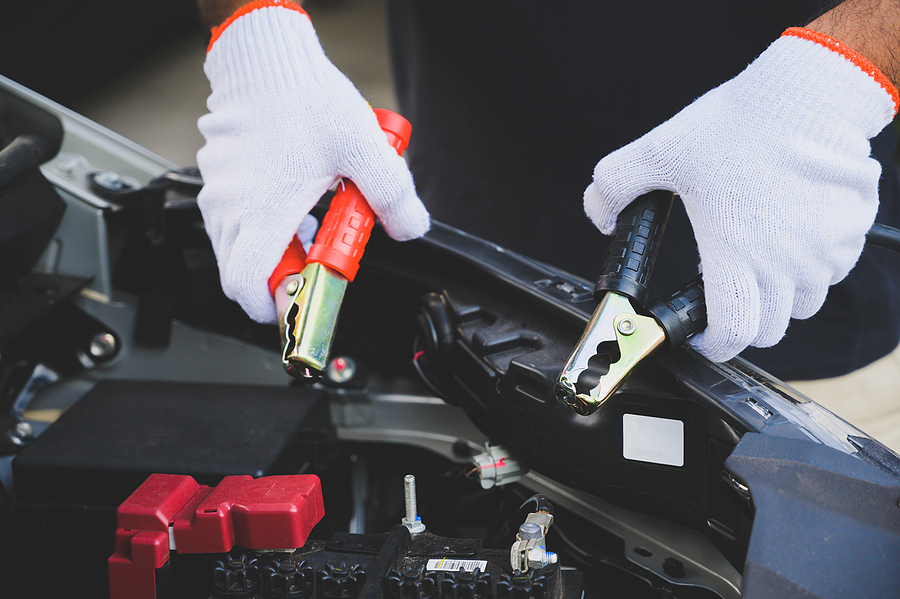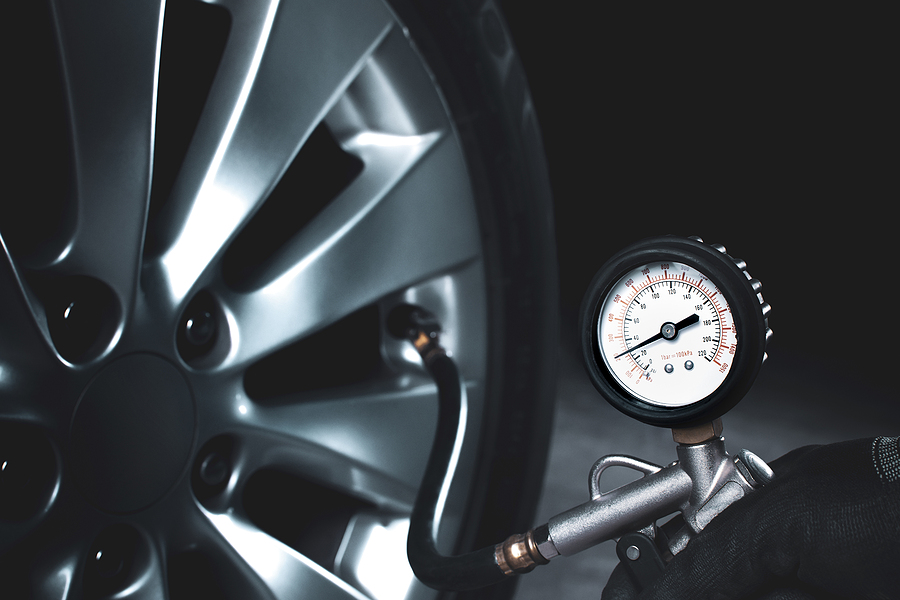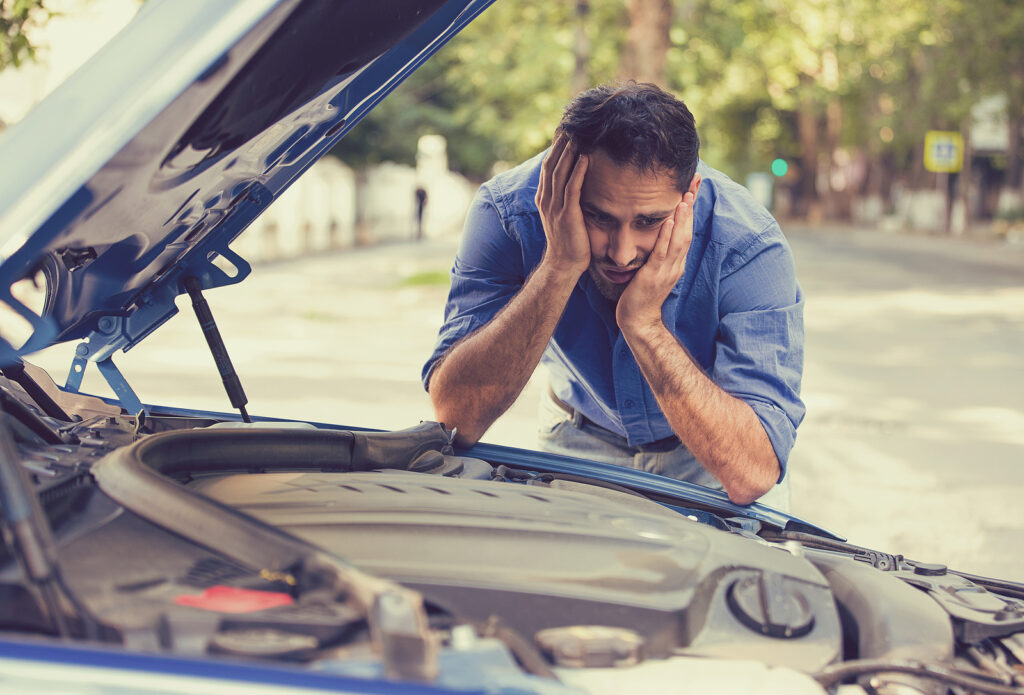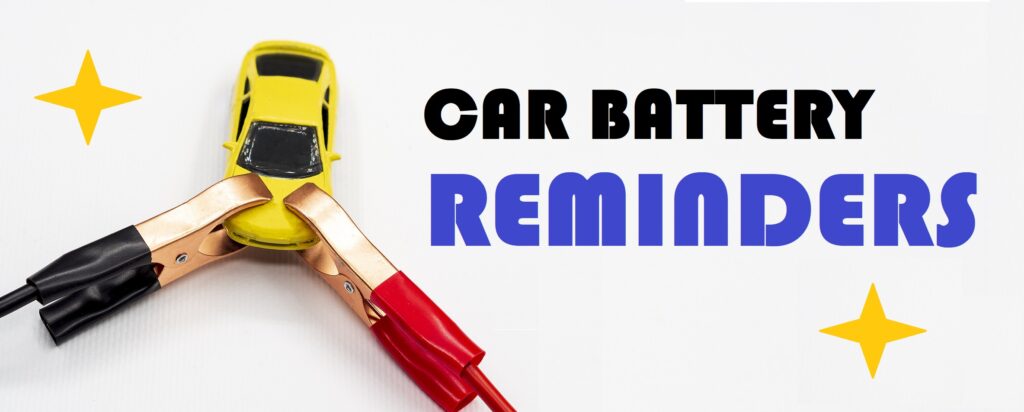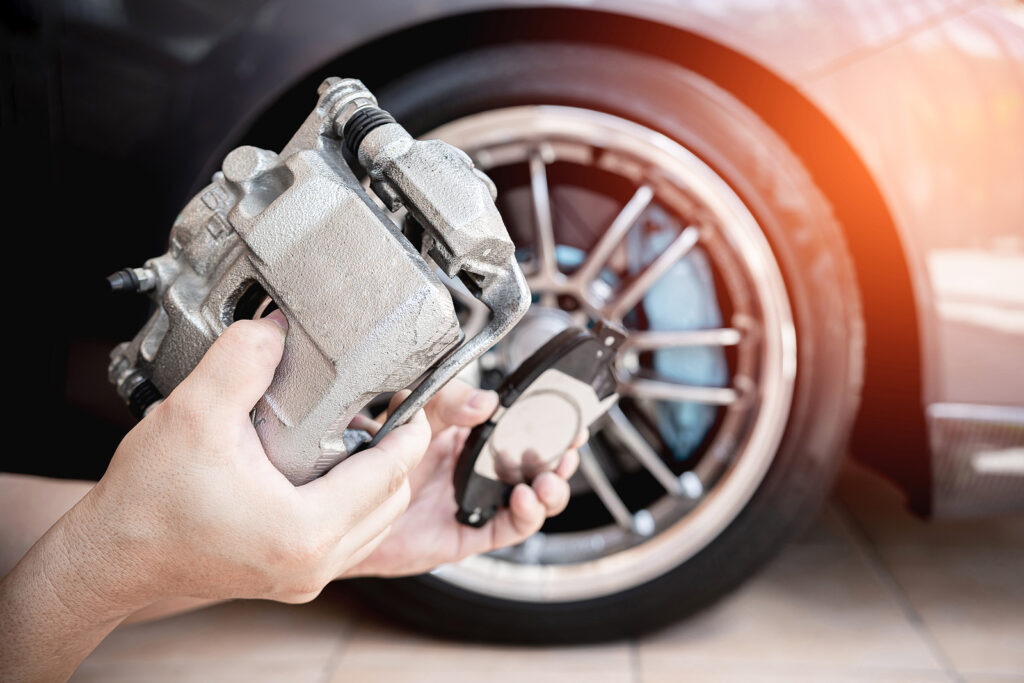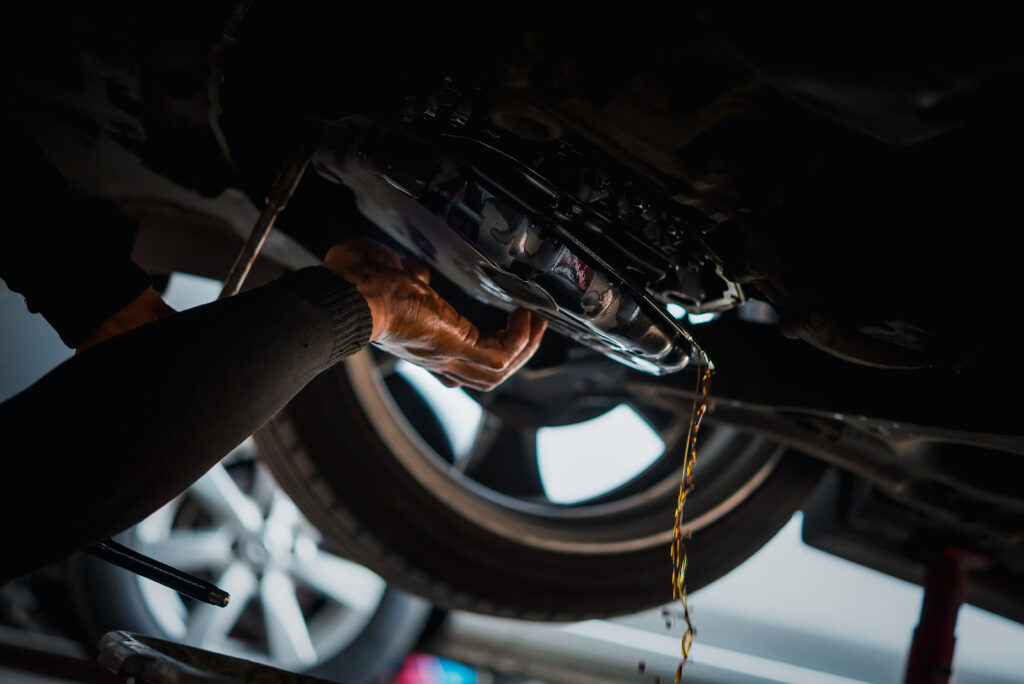When it comes to driving, whether yourself or your loved ones, safety is always front of mind. There is no better way to ensure optimal safety and performance of your vehicles than responsible auto service and maintenance. Not only should you have your vehicles inspected by a licensed mechanic, according to the automotive manufacturer factory scheduled maintenance recommendations, but you should also know how to visibly inspect and care for your car on your own.
Although all manufacturer recommended auto services and car care best practices should be followed, continue reading to learn the top five auto services that are the most critical to your overall safety.
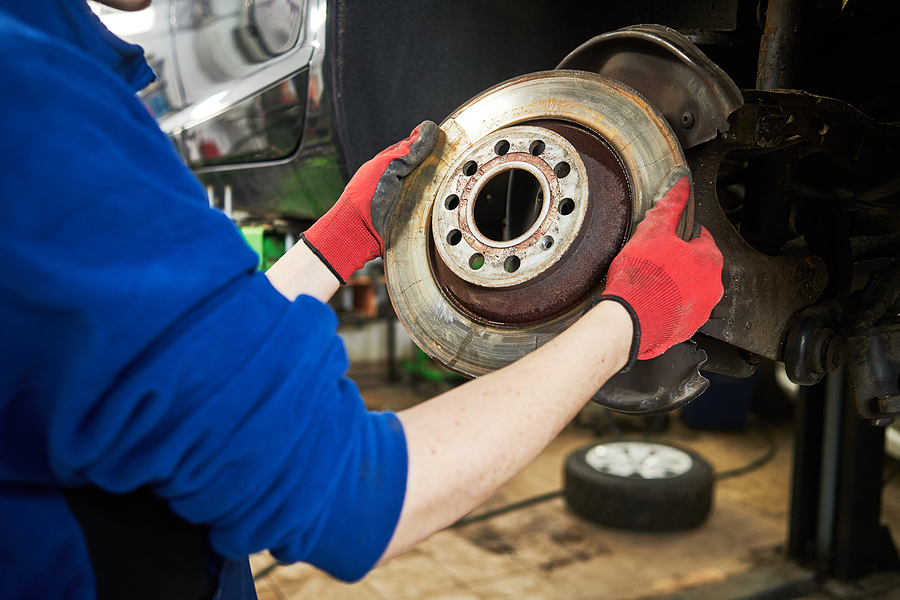
5 Safety Focused Auto Services
To protect yourself from danger, out on the road, these five safety focused auto services should be at the top of your routine car maintenance priority list: brake replacement, shocks and struts replacement, exterior light inspections, windshield wiper fluid refills, and car fluid refills.
Car Brake Replacement
Car brakes are not designed to last forever. At some point in time, your vehicle’s car braking system will need either a full replacement or parts replacement. When car brakes wear down, they lose performance value. Since brakes are arguably the most important safety feature of the vehicle, a decline in corporate performance is a serious issue that requires immediate attention. As for parts, brake pads can deteriorate over time, so they need to be changed on a routine basis to ensure optimal braking and friction and performance.
Shocks and Struts Replacement
Shocks and struts generally began to experience wear and tear between 50,000 and 100,000 miles. This is typically a middle-aged vehicle, with struts in the front and shocks in the rear end. If you’re feeling like your car is bouncy when you drive or if it’s sagging on one end, you could have a damaged strut or blown shock. Damaged shocks and struts can pose serious risks out on the road since a car can become less responsive to steering and braking.
Exterior Light Inspections
It is important to routinely check on the exterior lights of your vehicle. This is something that you can do all on your own, or even enlist the kids to do for you. Simply insert your key into the ignition. Clicking it over one time so that your lights turn on. But your engine stays off. Then, while monitoring reflections around you or with the help of a partner, check to see that your turn signals, windshield Wiper, parking lights, headlights, brake lights, and brights are all working. If you ever drive in the evening hours or at night, exterior lights are vital to your overall safety on the road. Even if you are a daytime driver, inclement weather conditions and foggy weather can put you in serious danger. If your exterior lights are not functioning properly.
Windshield Wiper Fluid Refills
On the subject of inclement weather conditions, having a full reservoir of windshield wiper fluid is critical to your visibility, which is critical to your overall ability to operate your vehicle safely. Not only is it important to use a quality windshield wiper fluid, but it is also important to routinely fill it up, especially during times of frequent use. Along with windshield wiper fluid, it is important to replace your actual windshield wipers every year or two. And unlike many other products in life, price does matter. The more expensive the windshield wipers are, the better performance you can expect.
Automotive Fluid Refills
Along with windshield wiper fluid, your vehicle requires six other vital automotive fluids that need to be refilled on a routine basis. These fluids include motor oil, coolant (radiator fluid/antifreeze), brake fluid, power steering fluid, transmission fluid, differential fluid (if applicable), and battery fluid (if applicable). Refer to your owner’s manual for instructions on how to check and refill these fluids for your make and model vehicle.
Are you looking for a trusted German factory trained auto mechanic for your luxury or European vehicle? Contact Autohaus Dierolf at 317-571-0800 for European car maintenance in Indianapolis, Carmel, Indiana. We are German factory trained mechanics who specialize in German and European vehicles.
Related Posts:
When Do I Need to Change the Fluids in My Car?
Recommended Car Maintenance for Fall
How to Safely Jump Start a Dead Vehicle Battery


